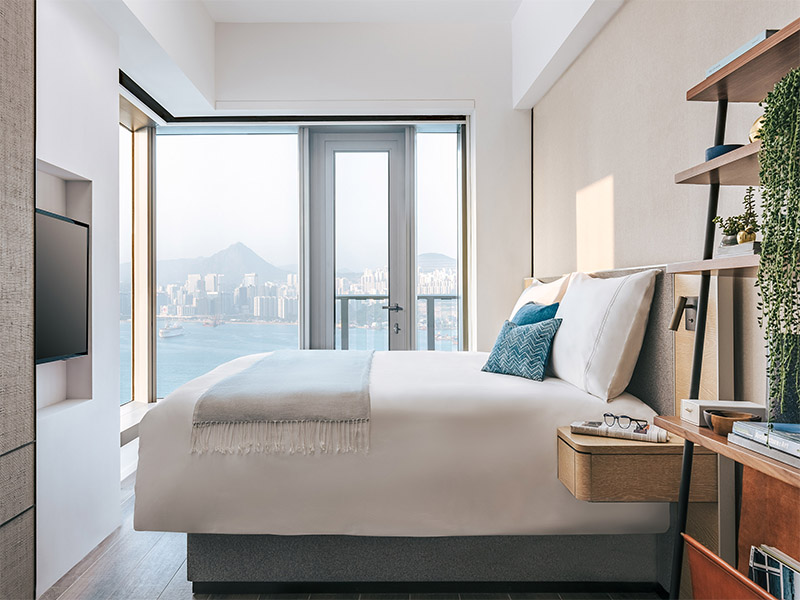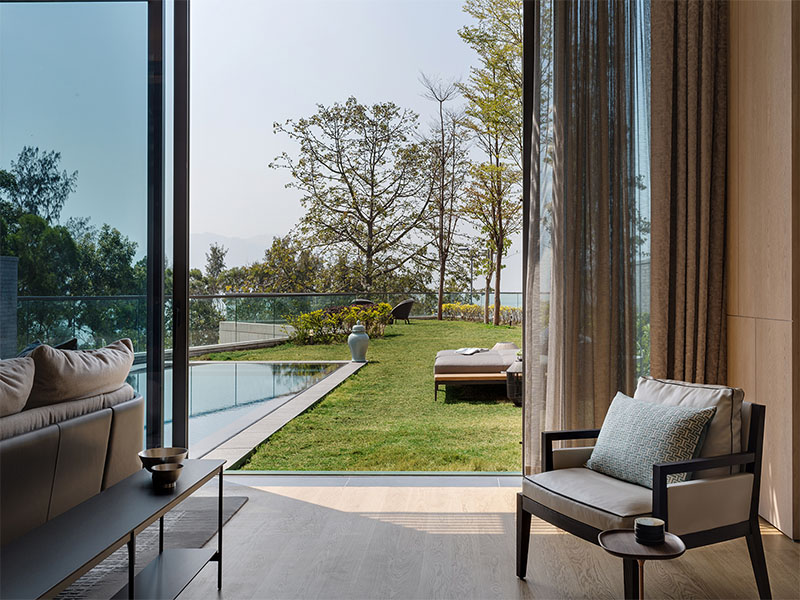It’s important to find the right place to live if you want to ensure that you and your family have a happy experience in Hong Kong. To help you negotiate your way through the property minefield, here are the answers to some of our readers most pressing questions.
Questions from renters
#1 “How do I find the right agent?”
There are lots of property agents in Hong Kong. Finding an agent who can identify with you, understand your requirements and advise on whether they are realistic is very important. Make sure you have the chance to brief your agent either in person or over the phone so that he or she can get a good understanding of your criteria. At the same time, you can evaluate whether you feel confident that this will be the right person to help you to find your perfect home.
Your agent should also be able to highlight the standard practices that are specific to renting in Hong Kong, especially if you’re doing so for the first time. This will save a great deal of time in your property search and you’ll only have to visit shortlisted properties that meet a majority of your requirements. The larger global real estate agencies are a good place to start. These agencies have excellent connections both nationally and internationally – in case you consider renting outside of Hong Kong in future – as well as strong local relationships for while you’re seeking a home here. Finding a good agent can be through word-of-mouth, recommendations or online websites.
#2 “Will I need to pay the agent a commission? How much?”
Yes, standard agency fees in Hong Kong for rentals equate to 50 percent of the agreed rent for one month, although these rates may vary subject to what the relevant parties agree on. Agency fees are normally paid by both the landlord and tenant.
#3 “How many properties should I look at?”
There is no finite number of properties you should visit. The important factor is that you “feel right” in the places you are visiting. Depending on how familiar you are with Hong Kong, you may wish to see a variety of different styles and locations, prior to narrowing down your choice. Hong Kong’s residential leasing market is often very fast-paced, especially during the peak period in the lead up to summer and the new school terms, so you should make a speedy decision if you do see a property you like. The popular places get snapped up quickly!
#4 “Can you recommend some great areas or specific properties to rent?”
Southside – or the southern part of Hong Kong Island – and the Mid-Levels are traditionally very popular choices with expats and families. However, as rentals keep rising and schools are moving further afield in Kowloon and the New Territories, clients are beginning to consider more developing areas such as the western New Territories, as well as the eastern and western parts of Hong Kong Island. More families are moving further out to the outlying islands. The Argyle in Ho Man Tin, The Drake in Siu Lam, Waterfront Suites in Sai Wan Ho and The Kennedy on Belchers in Kennedy Town are some of the top-quality properties that are currently commanding keen interest among renters.
#5 “I’ve found the place I like. What are the important steps to take before signing on the dotted line?”
It’s important that the agent carries out due diligence on the tenant’s behalf prior to signing and paying any deposits. Such due diligence includes conducting a land search to check if there is any existing mortgage on the property or any orders that need to be complied with, and whether there are any works planned on the building or within the vicinity.
#6 “Any hidden charges to be aware of?”
Rental figures don’t always include management fees and government rates. Take care if the quote for the rental is “exclusive”. This means that you will have to shoulder management fees and rates on top of the base rental per month. You should also factor in the cost of utilities – water, electricity and gas – which are usually not included in the rental, unlike in some other markets.
It’s common practice in Hong Kong for each party to bear their own legal costs, but some landlords may charge an administration or legal fee. Internet providers sometimes charge hefty installation fees for high-speed internet connections. It’s not uncommon in Hong Kong to find an apartment that doesn’t have a high-speed fibre optic internet connection in place. We would recommend arranging for a home insurance policy, though this may be specified by the landlord in some tenancy agreements.
#7 “How much security deposit do I need to pay?”
A typical security deposit will be two to three months’ total rental, subject to negotiation. In some cases, the landlord may require only one month’s rental or in some other cases it can be as high as the equivalent of four months’ rental.
#8 “How can I ensure I get my deposit back at the end of the lease?”
Provided you haven’t breached any of the terms in the tenancy agreement, your deposit should be returned to you, according to the time specified in the agreement. That timeframe usually ranges from 14 to 30 days after you’ve vacated the premises. In order to avoid any disagreements over responsibility for defects or issues on hand, your agent should ensure that they take detailed handover photos for your record prior to your move in. Keeping the property in a tenantable condition, notifying the landlord promptly of any issues, and maintaining a good relationship with the landlord are all good practices to keep when renting an apartment.
#9 “Can I negotiate the terms of the standard rental agreement?”
Many corporate landlords in Hong Kong like to keep agreements the same for all their tenants, and may not be willing to entertain amendments to their standard agreements. It will be for your agent to help you negotiate small changes to contracts as needed. An important point to note is that tenancy agreements in Hong Kong tend to be more landlord focused compared to other markets. This is something that is not easy to change here, so the tenant has to accept that it is different!
#10 “Who looks after things like air-con units, me or the landlord? What about issues such as damage from a typhoon?”
It’s important to establish responsibility for certain items in the apartment while you negotiate the terms of the lease. Many landlords will clean and ensure that the air-conditioners are in good order prior to the tenancy but will ask that the tenant maintain the units during the lease term. The contract should specifically state whether you or the landlord is responsible for the maintenance of fitted household appliances such as air-conditioners and white goods. Once again, a good agent should inform you of the responsibilities that you have committed to as a tenant.
Most tenancy contracts in Hong Kong absolve the landlord of all responsibility in the case of typhoons. That is why it’s important to arrange for home insurance. Some landlords insist on including a clause in the tenancy agreement that states that any damage to windows is at the tenant’s expense.

Questions from the buyers
#11 “Is it a good time to buy?”
We would recommend buying a home if you’re planning to stay in Hong Kong in the long term and are buying for your own use. Residential sale prices in Hong Kong have continued to rise despite the government’s property cooling measures. The sales market appeared to have slowed in Q4 of 2018 in the light of global macroeconomic uncertainty but we saw market sentiment improve and buying activity rise again in the first quarter of 2019.
#12 “Are there any restrictions I need to know about?”
Stamp duty taxes for those who don’t have permanent residency status in Hong Kong can be high.
#13 “What kind of deposit do I need to pay, and what are some of the costs I need to keep in mind?”
Buyers are required to pay a preliminary deposit equivalent to five percent upon signing the Provisional Agreement for Sales and Purchase (PASP). According to the Residential Properties (First-hand Sales) Ordinance, the buyer will then need to sign an Agreement for Sales and Purchase (ASP) within five working days after entering into a PASP. This measure is intended to safeguard the buyer and provide a cooling-off period in case you change your mind about the purchase. The PASP is considered terminated and the preliminary deposit is forfeited should the buyer fail to sign within five days. The remaining deposit is usually payable on or before a specified agreed date. Normally, the further deposit together with the initial deposit equates to 10 percent of the purchase price. The buyer will also need to pay their share of the agency fee, stamp duty and legal fees.
#14 “Can you recommend some great areas or specific properties to buy?”
It’s recommended to buy properties located near potential new transportation infrastructure, such as soon-to-be completed MTR lines, and public facilities like schools. Factors such as accessibility and convenience will raise the value of and interest in a property.
#15 “I’ve found my dream home! What happens next?”
Don’t hesitate if you’re really sure it’s your dream home! Place your offer and try to agree on terms as soon as possible so you don’t lose the property to another interested buyer.
See more in our Living in Hong Kong section
The costs of investing: what to look for
Find the care you need for your pet
Guide to where to live in Hong Kong
This article first appeared in the City Guide 2019 issue of Expat Living magazine. Subscribe now so you never miss an issue.






